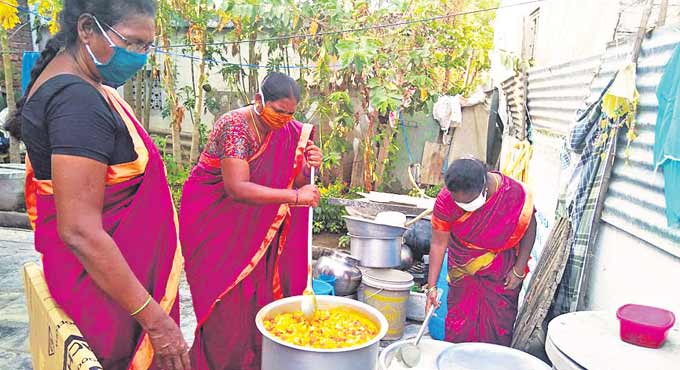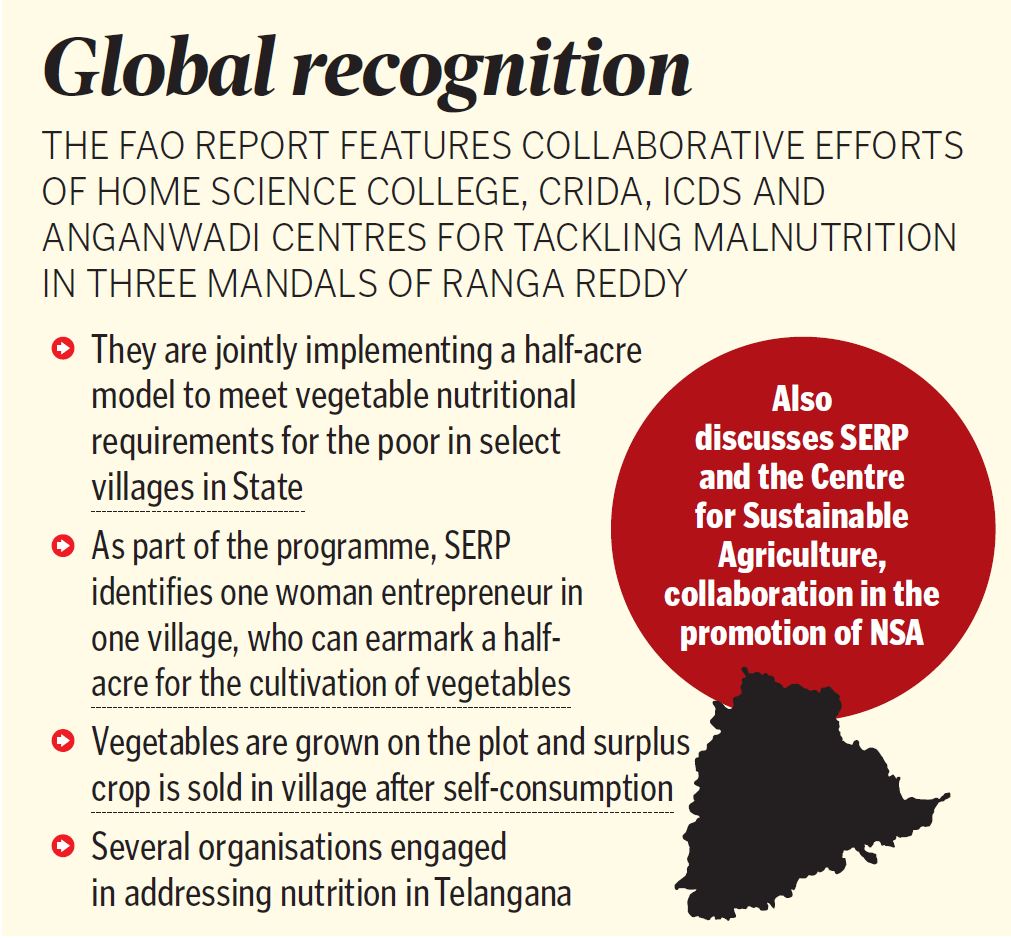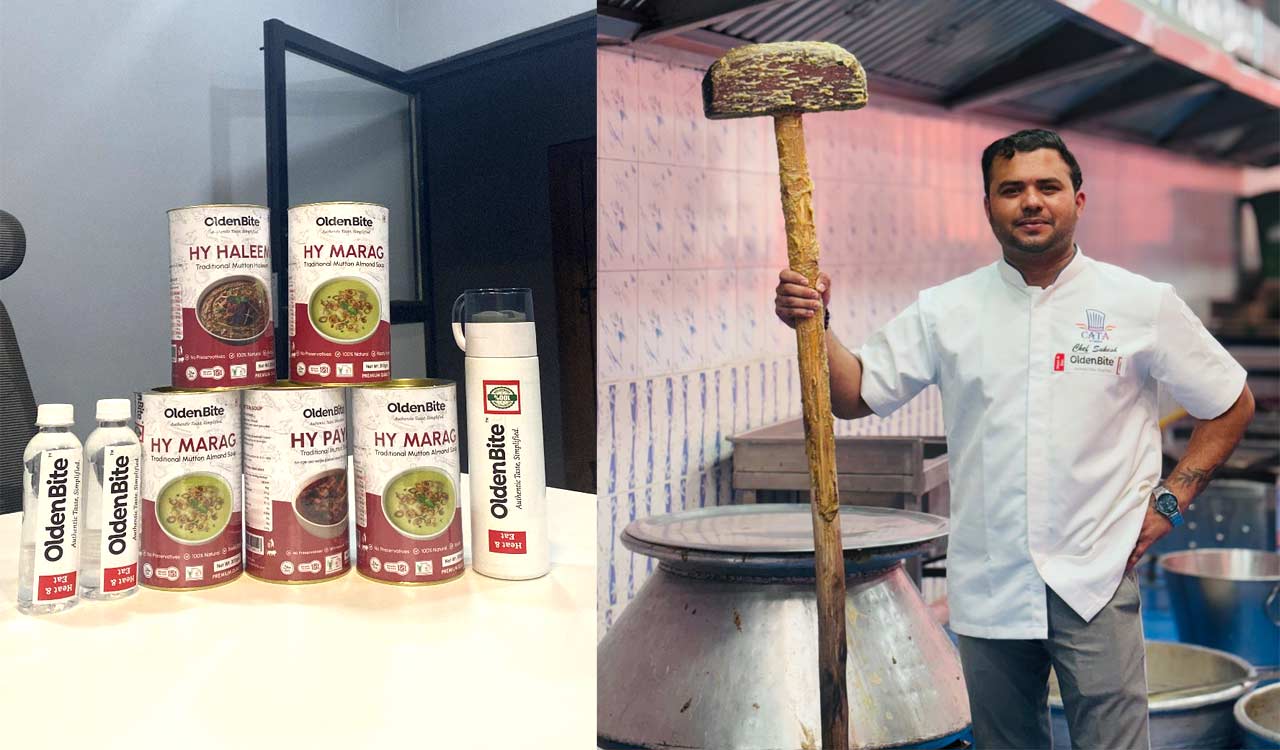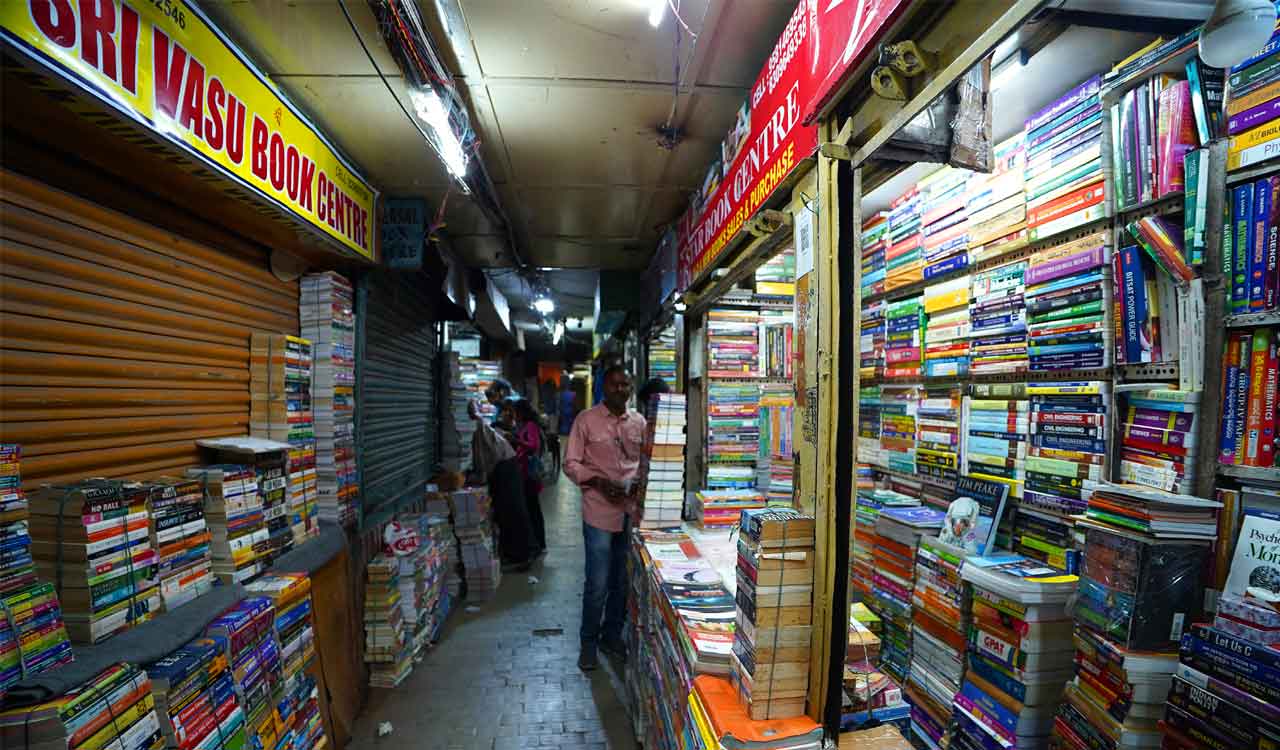Malnutrition: Telangana’s efforts find place in UN report
Hyderabad: Apart from Central Government’s recognition, Telangana Government’s measures being taken up to address malnutrition among women and children, now feature in a report of the Food and Agriculture Organization of the United Nations (FAO) 2022 report focusing on Nutrition-Sensitive Agriculture (NSA). The FAO report on “Bridging the gap between nutrition and agriculture in Telangana […]

Hyderabad: Apart from Central Government’s recognition, Telangana Government’s measures being taken up to address malnutrition among women and children, now feature in a report of the Food and Agriculture Organization of the United Nations (FAO) 2022 report focusing on Nutrition-Sensitive Agriculture (NSA).
The FAO report on “Bridging the gap between nutrition and agriculture in Telangana – An assessment of capacity within agricultural extension and advisory services” is released this month at Rome.
It features the collaborative efforts of Home Science college, Krishi Vignan Kendra, CRIDA, Integrated Child Development Services (ICDS) and Anganwadi centres for tackling malnutrition in three mandals of Ranga Reddy, which earned Central Government’s Poshan Abhiyaa recognition in 2018-19.
The report also discusses SERP and Centre for Sustainable Agriculture (CSA), collaboration in promotion of NSA. They are jointly implementing the half-acre model to meet vegetable nutritional requirements for the poor in select villages in Telangana.
As part of this programme, SERP identifies one woman entrepreneur in one village, who can earmark a half-acre for cultivation of vegetables. The training on technical aspects is provided by the CSA. Vegetables are grown on the plot, based on what is locally feasible and surplus vegetables are sold in the village after self-consumption.
The half-acre model is agronomically designed to prevent production problems, reduce risks and avoid drudgery for women in the production process. The women entrepreneurs can also avail a credit facility (through SHGs) to buy a van to sell the vegetables in the village. The production model has been designed to provide a weekly income of Rs. 2,000 to a woman entrepreneur after meeting her domestic vegetable consumption needs (for three persons).
Similarly, under the ‘Giri Poshana’ programme funded by Central and State Governments, the Commissionerate of Tribal Welfare and block-level integrated tribal development agencies are working with ICRISAT for food distribution and monitoring.
With improved livelihoods, employment opportunities and decreased dependence on middlemen, tribal farmers in Adilabad district moved from subsistence to commercial operations. Pigeon pea and sorghum processing units were set up and self-employment opportunities were provided for women and youth, the report said.
It also shares ICRISAT’s nutri-food basket comprising nutrient-rich food products from locally available ingredients. These baskets are served through Anganwadi Centres to improve nutrition of children, pregnant women and lactating mothers.
The project is now being replicated in different areas under Integrated Tribal Development Agency, Telangana and Tribal Welfare Department.
The FAO in partnership with the Global Forum for Rural Advisory Services (GFRAS) assessed the gaps in learning and capacity among Extension and Advisory Services (EAS) providers globally.
In India, the pilot testing was undertaken by the Agricultural Extension South Asia Network (AESA) in Telangana. The study involved review of literature on the nutrition context, a review of programmes and policies addressing nutrition and NSA and other aspects.
Why Telangana was selected for pilot
Telangana was selected for two reasons. First, Telangana performs well in nutrition and health outcomes but its current level of anaemia among women is an area of concern. Second, Telangana has several institutions like National Institute of Nutrition, which are working on nutrition-related issues and they help in interactions with a wider range of stakeholders for the study.
Recommendations
According to the report, several organizations are engaged in addressing nutrition in Telangana. Each organisations approaches the issue from different perspectives like supplementary feeding, midday meals, healthcare (pregnant and lactating women and infants), enhancing agricultural production, promoting diversification to nutritious crops, policy advocacy etc.
However, the potential for addressing nutrition through agricultural interventions, especially in promoting NSA, is not yet fully realized. The State Agriculture Department’s EAS could play a major role in promoting NSA but addressing nutrition is not part of the department’s mandate or a priority.

Related News
-
Archer and Jacks lead England to win over Sri Lanka
6 hours ago -
India’s batting exposed in heavy loss to South Africa
6 hours ago -
Sports briefs: Ayaansh, Adhya emerge champions in sub-junior tennis
6 hours ago -
Siddhanth-Donski emerge doubles champions at Delhi Open
7 hours ago -
Opinion: Work from anywhere, belong nowhere
7 hours ago -
Editorial: Towards democratising the Artificial Intelligence
7 hours ago -
Doha to host ICC Board meetings in March
7 hours ago -
Degree student dies at swimming pool in Alwal
7 hours ago




